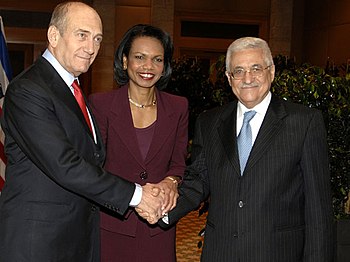In
Hiding or opening attitude for same sex relationships we pointed out that it perhaps would be better that people questioned themselves which attitude Jesus would take, before they judge somebody.
Director of Oasis Trust,
Steve Chalke believes about our attitude to people who have an other feeling for giving their love to somebody are changing, albeit very slowly. Despite
the
Oasis Trust being forced to leave the Evangelical Alliance over his
views on homosexuality,
"it's amazing how the conversation won't go
away. In fact it's growing, I think it's unstoppable,"
he said.
"We as Christians should be intolerant of intolerance. I think that
we should be on the front line of human and civil rights, and I think
it's a tragedy that so often, as history has recorded, we drag our
feet...The church is supposed to be standing up for faithfulness,
integrity and family."
Chalke thinks that the Church will eventually come out in favour of
faithful, same-sex relationships.
"I think the sandcastle of resistance
is being overwhelmed by the incoming tide," he said.
After the rows and debates that have dominated for the past few years,
one image of Britain's Christians is of a people obsessed with rules
around sex and with stopping people from having sex, especially when it
is gay sex or sex outside marriage.
there may not be many people in church any more but of those who are there we should not that one in 200 regular churchgoers have entered a formal relationship
with someone of the same sex, according to research published in July 2014. In that survey conducted by Christian Research for
Christian Today there was found
that 0.6 per cent of churchgoers are in a civil partnership, slightly
more than the number cohabiting.
Although statistically small, given the size of the survey, the
number is high considering the widespread hostility to homosexual
relationships among the leadership of many Christian churches. The
Church of England and Catholic churches believe that marriage is between
a man and a woman.
The poll researched 1,400 people aged over 16 who were representative of the country's churchgoing communities.
More than one in 20, or 5.8 per cent, were divorced or separated
compared to six out of ten who were married. More than one in 20, or 6.5
per cent, were remarried after divorce.
More than two-thirds said that Christians should not cohabit before
marriage, and nearly as many also believed Christians should marry other
Christians, rather than those of other or no faith.
More than two-thirds believed that personal desire need not
necessarily translate into physical sex. However, more than seven in ten
agreed or strongly agreed:
"My spouse/partner and I love the physical
part of our relationship."
Nearly seven in ten thought their spouse or partner had been
specially "put aside" for them by God, while fewer than half did or do
prayer about the kind of person they wish to marry. Friends or family
had tried to find matches for more than one in ten, and nearly half
looked for their ideal partner within a
Christian church or community.
More than a third felt "carefree" during their dating days, but a fifth
felt pressure to find the "right person".
Nearly eight in ten felt it important to marry another Christian and
more than eight in ten did indeed marry another person of the
Christian
faith. Just one tenth had not been Christian before they married. those Christian communities which demand that people marry only people from the same faith-group forget to see that there are not enough people living around to provide enough partners. For smaller communities like the Christadelphians youngsters face even less possibilities to find a partner from the same Christadelphian community.
The proportion in civil partnerships is about half the number of
people in the general population who describe themselves as gay.
According to an
Office for National Statistics survey last year 93.5 per
cent of people are heterosexual, 1.1 per cent gay or lesbian and 0.4
per cent bisexual.
About getting parents and church-leaders to get to hear an other choice than the man-wife relationship the youngsters are still hesitant to let others know their taste. They are confronted with lots of talks about "healthy" and "unhealthy" physical relationships of married churchgoers. Not only is there today the problem in many church communities of being able to talk openly how to build up a sexual relationship or to discuss the feeling of becoming more confident to
explore with enjoyment their God-given gift of sexual pleasure in
marriage without some of the historical taboos and anxieties that have
often traditionally shrouded the Christian sexual culture.
It took some time before the Belgian church wanted to react more openly after the many sex scandals about their priests and even bishops having had sexual intercourse with people of the same sex.
In 2014 on several occasions the Bishop of Antwerp, Rt Rev Johan Bonny, said that there should be "a recognition of diversity of forms" of relationship and gave the impression to be open for gay people in his community and for giving again communion to separated or remarried people.
"We have to look inside the Church for a formal recognition of the kind
of interpersonal relationship that is also present in many gay couples,"
the Catholic 'church-father' said.
"Just as there are a variety of legal frameworks for partners
in civil society, one must arrive at a diversity of forms in the
Church."
We can see that the general public seems to become more open and acceptable for divorced people, which is no more considered abnormal, but more the traditional trend, nor to look surprised to find people who prefer to have an intimate relationship with somebody of the own sex or to even have a sex change. As such we get women who became man marrying with men who became woman, but also men with men and women with women.
Though the general public does not seem to be interested much in the long-standing relationship, the
Roman Catholic church still finds intrinsic values more important than the institutional
question and that those who want to live together should know that the
Christian ethic is based on lasting relationships where
exclusivity, loyalty, and care are central to each other.
That picture of
"exclusivity, loyalty, and care for each other" was the main value which lots of people could not see because the wrong image given by gay-parades which accentuated a perverse form of living and presented a promotion for sodomy, which no church could ever allow to happen under its flock.
Before the Vatican's Synod on the Family in October, Bonny issued an
open letter saying that the Church needed to show more respect for
homosexuality, divorced people and modern kinds of relationships.
While traditional marriage
between a man and a woman
"will continue to retain its own particular
sacramental character and liturgical form", he said, "this particularity
does not have to be exclusive nor does it have to close the door on a
diversity of relationships whose inner qualities the Church can
acknowledge".
He continued:
"Indeed, we need to seek a formal
recognition of the kind of relationship that exists between many gay and
lesbian couples. Does that recognition have to be a sacramental
marriage? Perhaps the Church could much better reflect on a diversity of
forms of relationships."
The last few years we have seen this diversity of forms of relationships growing a lot. We also find more and more clergy who agree that the church often did not treat other feeling people rightly. as such we could find Rt Rev Alan Wilson, who said at a PinkNews Awards that he is
"ashamed" at the way gay people have been treated by the Church of
England; and theologian Tony Campolo, who says he is
"conservative on
the issue of the Bible and same-sex relationships".
We also can notice that more
Christian artists and theologians are coming out and not only tell that they are gay but also are not ashamed any more to show their relationship with the other.
Though still many may look at others with a 'bad eye'. some do not want to talk about it openly , but do not mind to talk underhanded about 'certain people living a sinful
lifestyle' and 'how wrong it is'. They are happy to throw with mud, but not openly, and forget that some two thousand years ago there was a teacher in Galilee who wanted to show people they had to take on an other attitude. That master teacher also asked those who wanted to throw stones to others to look first in their own heart and if they could find no sin, than perhaps they could react heavily.
Jesus didn’t judge those who were different and asked us also not to judge them but to leave the judging to his heavenly Father, God. It is this Divine Creator Who allows people to be here on earth. When He allows those who have other feelings than us to be here what are we to say? God did not put us here to judge others.
We have the Bible that tells us what is right and what is wrong, but
we’re not to pass judgement. People forget that God doesn’t grade on a
curve; the heterosexual couple living together down the street is just
as guilty as the gay couple living across the street. How are you to
draw people to Christ if you have appointed yourself judge and jury?
When we look at others and when we would like to react we always should consider What Would Jesus Do! For sure we cann't put ourselves above Jesus, and should take into account his teachings. We also should take on an open attitude to draw them closer to Jesus his teachigns and to the Word of God, so that they can come to know it and live according it.
By bringing condemnation over those people we shall not be able to bring them closer to God. Just the opposite, we shall be able to keeping them at a distance or
to cause that they shall come to judge All Christians as judgemental hypocrites.
We must
be very careful that we live and act according to the teachings of Jesus Christ and approach people with the same attitude Jesus would do, which is with an open mind full of love and without judgement.
Let us always try to mirror our saviour Jesus Christ and remember:
Jas 4:10-12 The Scriptures 1998+ (10) Humble yourselves in the sight of the Master, and He shall lift you up. (11) Brothers, do not speak against one another. He that speaks against a brother and judges his brother, speaks against Torah and judges Torah. And if you judge Torah, you are not a doer of Torah but a judge. (12) There is one Lawgiver and Judge, who is able to save and to destroy. Who are you to judge another?
+
Find also:











































